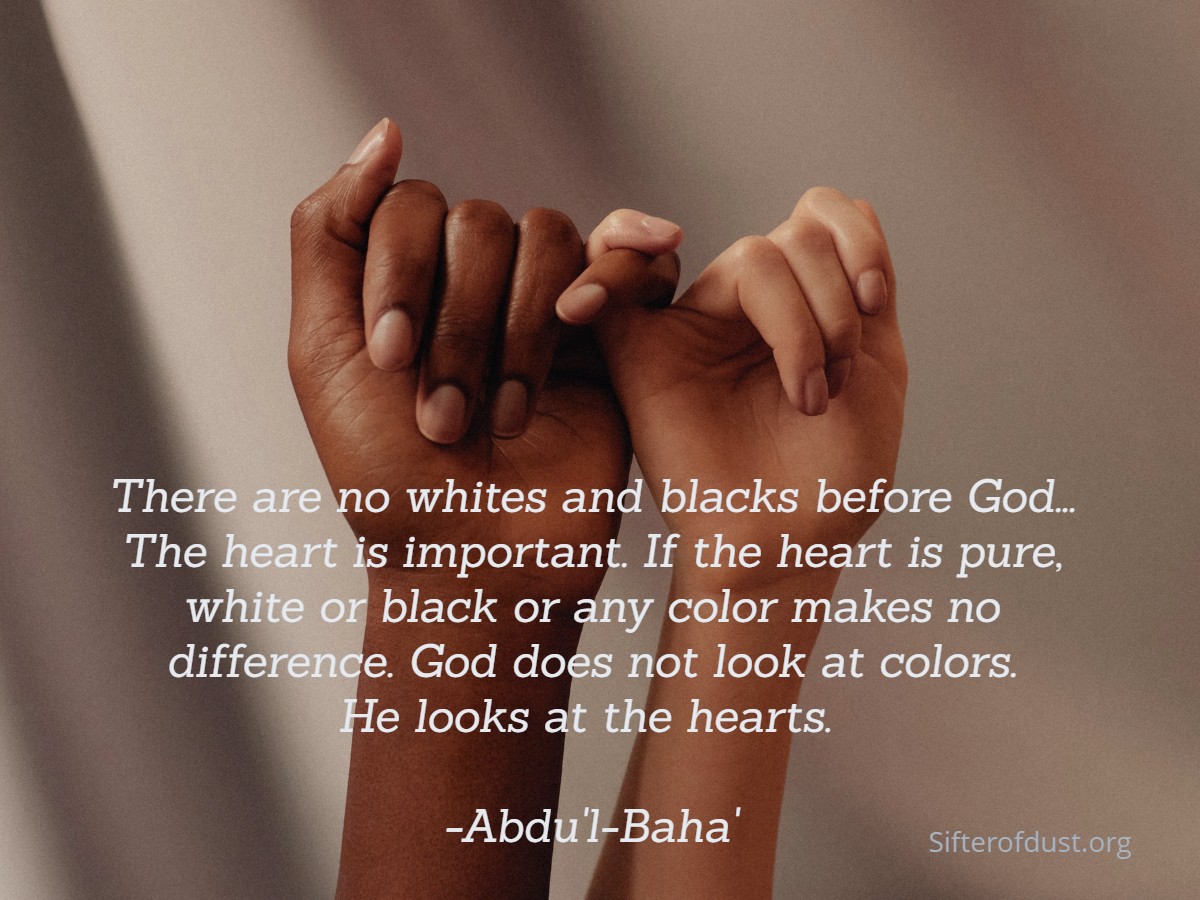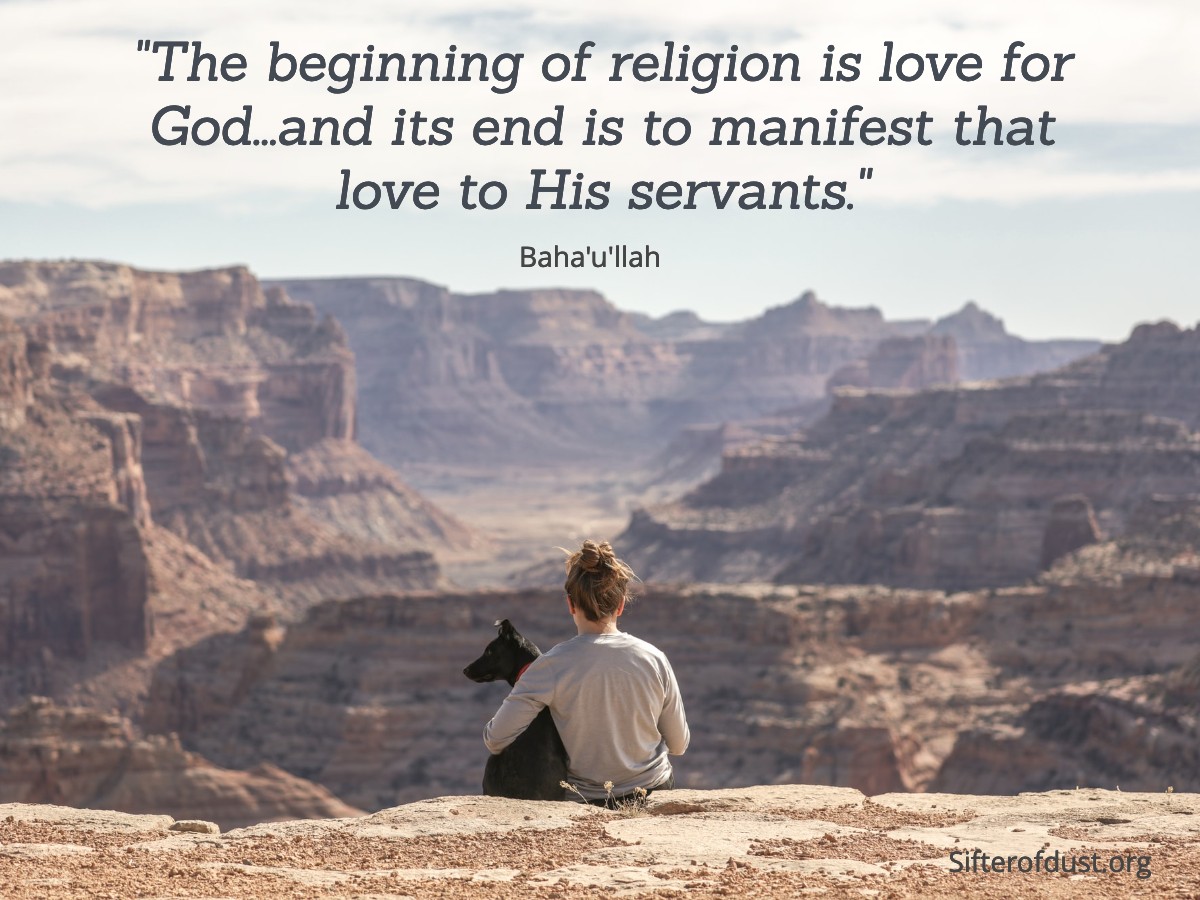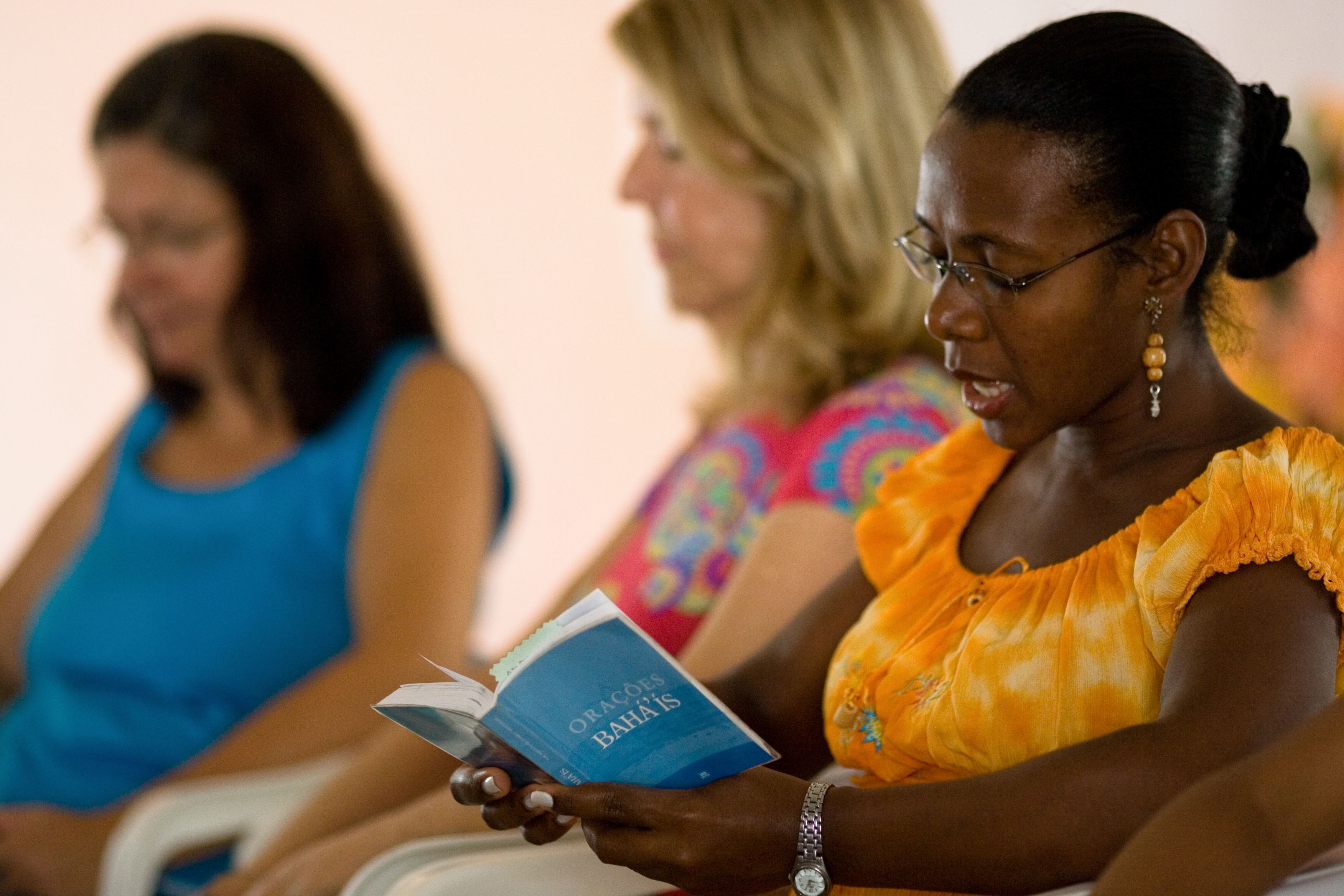The passages we’ve read in the last two days were intended to get us thinking about the spiritual power and beauty that lies in each of us. Hopefully, they and the others presented previously have made it clear that there is a treasure worth searching for. Another metaphor that is used in the sacred scriptures is that of a candle, or an inner spiritual light that exists within each of us. Anyone who has ever tried to start a real fire knows that, once you’ve got it lit, you need to feed it or it quickly goes out. Baha’u’llah referred to this in the passage yesterday: “Let the flame of the love of God burn brightly within your radiant hearts. Feed it with the oil of Divine guidance, and protect it within the shelter of your constancy.”
But how do we feed it? All the scriptures refer to feeding your spirituality as a daily process, often explicitly through prayer and meditation. Jesus Christ gave His followers a specific prayer to memorize and say (“The Lord’s Prayer”) and the first chapter of the Quran is a prayer. Baha’u’llah literally revealed dozens if not hundreds of prayers for Baha’is to say, often in the context of a letter or Tablet to an individual believer.
The striking element common to all the prayers revealed for our use by these great Messengers of God is that they explicitly focus on spiritual things, as opposed to anything material. For many people critical of prayer, it seems like an “unscientific” practice, in that you are asking natural forces to give you something you need- often something material- or for some event to happen. It’s true that prayer can degenerate into an almost superstitious practice, so it’s worth focusing on what the revelations of God have actually taught us about prayer. When we do that, we see that the prayers that are taught by Christ, Muhammad, and Baha’u’llah are never about material things.
In one of His Tablets, Baha’u’llah reveals a prayer that says something remarkable:
“Whatever duty Thou (God) hast prescribed unto Thy servants of extolling to the utmost Thy majesty and glory is but a token of Thy grace unto them, that they may be enabled to ascend unto the station conferred upon their own inmost being, the station of the knowledge of their own selves.”
Prayer then, is a practice in which we engage to bring us closer to our own true selves.
When we study prayer thoughtfully, we recognize that it is actually an expression of the true reality of our situation as human beings. All of us, however great and talented we may be, have had an utter dependence on other people and forces that are beyond our control for us to achieve anything. We were all dependent on our parents or whoever gave of themselves to raise us. The natural forces that caused us to be here, that each religion teaches are ultimately the expression of the Will of God, were something we also had no control over. It took 13 billion years of the evolution of matter to bring the human race into being. Each of us is the culmination of a vast process of physical, social, and spiritual evolution. “Thankfulness” therefore reflects the reality of our situation, whereas someone who praises themselves all the time, outwardly or inwardly, and is focused only on their achievements in isolation, is actually reflecting his own ignorance.
Finally, sometimes when it comes to spiritual truths, up is down and last is first. By putting our heads to the ground in prayer, we are actually raising ourselves up spiritually and making ourselves stronger. Like the U2 song says- “If you want to kiss the sky, better learn how to kneel”. (The same is true of material wealth, as expressed by Jesus in the passage yesterday, more can mean less!)
The passages we will focus on in the next couple days will enlarge on these themes. We will also present some beautiful music, starting with a prayer of Baha’u’llah set to music, one known to Baha’is as “Create in me a pure heart”.
For Jews and Christians, it is similar to Psalm 51, which starts as follows-
“Create in me a pure heart, O God, and renew a steadfast spirit within me. Do not cast me from your presence or take your Holy Spirit from me.”
Baha’u’llah’s prayer starts similarly but is different overall. Both are beautiful.
“Create in me a pure heart, O my God, and renew a tranquil conscience within me, O my Hope! Through the spirit of power confirm Thou me in Thy Cause, O my Best-Beloved, and by the light of Thy glory reveal unto me Thy path, O Thou the Goal of my desire! Through the power of Thy transcendent might lift me up unto the heaven of Thy holiness, O Source of my being, and by the breezes of Thine eternity gladden me, O Thou Who art my God! Let Thine everlasting melodies breathe tranquillity on me, O my Companion, and let the riches of Thine ancient countenance deliver me from all except Thee, O my Master, and let the tidings of the revelation of Thine incorruptible Essence bring me joy, O Thou Who art the most manifest of the manifest and the most hidden of the hidden.








